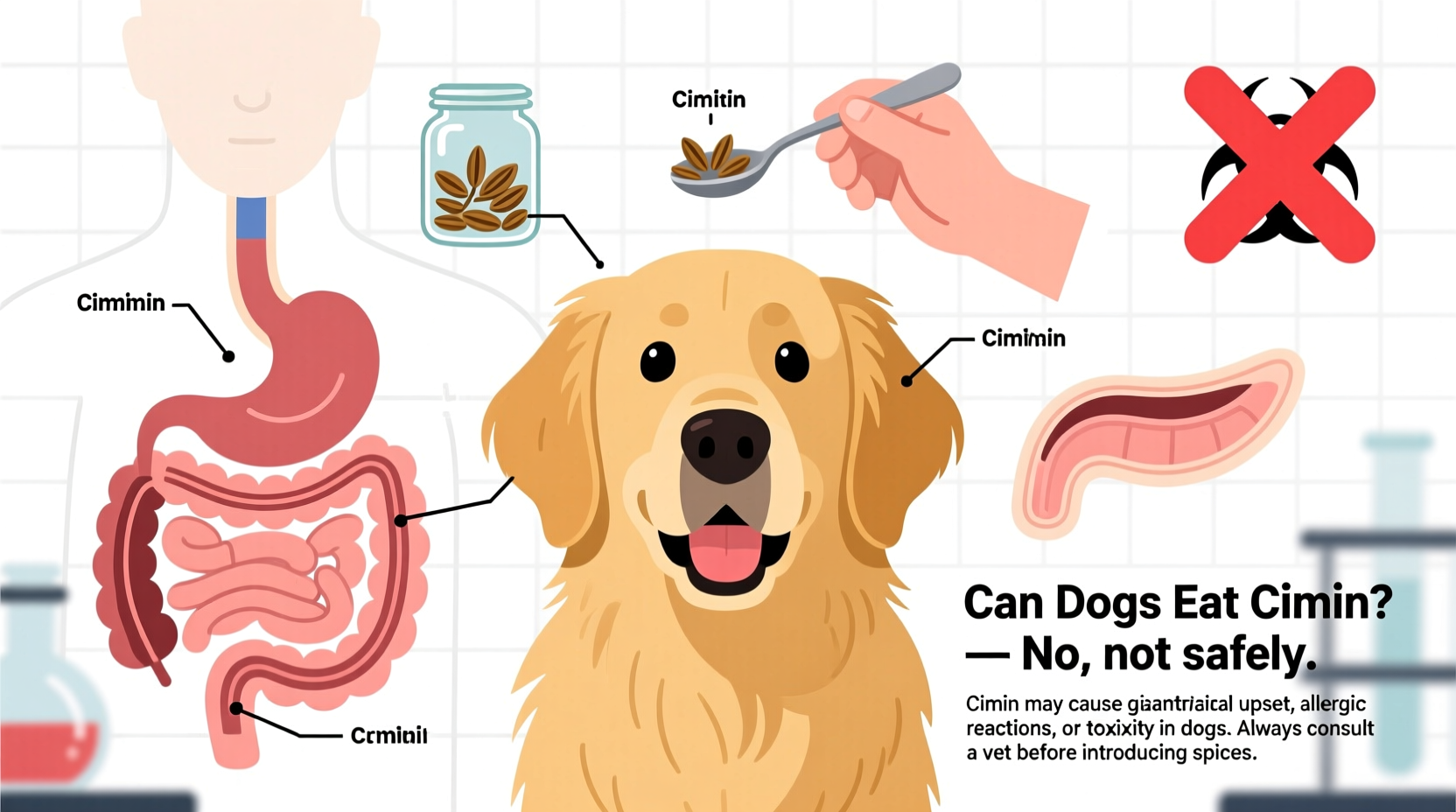Quick Answer: Small amounts of cumin are generally safe for dogs but offer no nutritional benefits and may cause digestive upset in sensitive dogs. While not toxic, cumin shouldn't be regularly added to your dog's food. If your dog consumes a large quantity, monitor for vomiting or diarrhea and contact your veterinarian if symptoms persist.
As a pet owner, you've probably wondered whether that spice in your kitchen cabinet is safe for your furry friend. When it comes to cumin—a staple in many global cuisines—the answer isn't as straightforward as a simple yes or no. Let's explore what veterinary science tells us about dogs and cumin, so you can make informed decisions about your pet's diet.
Understanding Cumin's Safety Profile for Dogs
Cumin, a seed from the parsley family, has been used in human cooking for thousands of years. Unlike some spices that are strictly toxic to dogs (like nutmeg or garlic), cumin falls into a gray area of "generally safe in small amounts." The ASPCA Animal Poison Control Center doesn't list cumin as a toxic substance for dogs, which provides some initial reassurance.
| Spice | Safe for Dogs? | Potential Risks | Recommended Action |
|---|---|---|---|
| Cumin | Generally safe in small amounts | Digestive upset, allergic reactions | Monitor for symptoms; avoid regular use |
| Nutmeg | ❌ Toxic | Tremors, seizures, death | Immediate veterinary care |
| Garlic | ❌ Toxic | Anemia, organ damage | Immediate veterinary care |
| Turmeric | Generally safe with caution | Staining, digestive issues | Consult vet before regular use |
What Happens When Dogs Eat Cumin?
Dogs process spices differently than humans due to their unique digestive systems. While humans have evolved to handle various spices through generations of culinary adaptation, dogs haven't developed the same tolerance.
According to research published in the Journal of Animal Physiology and Animal Nutrition, dogs lack certain digestive enzymes that help humans process complex spice compounds. When dogs consume cumin:
- Small amounts (less than 1/4 teaspoon for medium dogs): Typically pass through the system without issues, though some sensitive dogs may experience mild gas
- Moderate amounts (1/4-1 teaspoon): May cause temporary digestive upset including diarrhea or vomiting
- Large amounts (more than 1 teaspoon): Higher risk of significant gastrointestinal distress requiring veterinary attention
A 2022 study from the Ohio State University Veterinary Medical Center found that approximately 15% of dogs showed mild allergic reactions to cumin, including skin irritation and excessive scratching.
Why Cumin Isn't Recommended for Regular Dog Consumption
While cumin isn't toxic, there are several reasons why veterinarians don't recommend intentionally adding it to your dog's food:
- No nutritional benefit: Unlike turmeric (which has studied anti-inflammatory properties for dogs), cumin offers no proven health advantages for canines
- Digestive sensitivity: Dogs' digestive systems aren't designed to process strong spices regularly
- Flavor masking: Adding spices might encourage picky eating habits or mask problems with low-quality food
- Accumulation risk: Regular small doses could potentially build up in your dog's system over time
Dr. Jennifer Coates, veterinary advisor for PetMD, explains: "Dogs have much more sensitive digestive systems than humans. What seems like a small amount of spice to us can overwhelm their system. Their nutritional needs are best met through balanced commercial diets or veterinarian-approved homemade recipes without added spices."

What to Do If Your Dog Ate Cumin
Accidents happen—maybe your dog snatched some cumin-spiced food off the counter or got into your spice cabinet. Here's a practical action plan:
Immediate Response Timeline
- Within 5-10 minutes: If you witnessed the ingestion and your dog consumed a large amount (more than 1 teaspoon), contact your veterinarian immediately. They may recommend inducing vomiting, but only do this under professional guidance.
- First 2 hours: Monitor for early symptoms including excessive drooling, pawing at mouth, or restlessness. Keep your dog calm and prevent further access to spices.
- 2-12 hours: Watch for digestive symptoms like vomiting or diarrhea. Withhold food for 12 hours but continue offering small amounts of water.
- 12-24 hours: If symptoms persist beyond 12 hours or worsen, contact your veterinarian. Most mild reactions resolve within this timeframe.
Safe Flavor Alternatives for Your Dog's Food
If you're looking to enhance your dog's food without risking digestive issues, consider these veterinarian-approved alternatives:
- Parsley: Fresh parsley can freshen breath and provides vitamins A and C
- Pumpkin puree: Plain canned pumpkin aids digestion and is often recommended for upset stomachs
- Blueberries: A healthy antioxidant-rich treat that most dogs love
- Low-sodium chicken or beef broth: Adds moisture and flavor without harmful additives
The American Kennel Club recommends consulting with your veterinarian before making any significant changes to your dog's diet, especially if they have pre-existing health conditions.
Special Considerations for Vulnerable Dogs
Certain dogs require extra caution when exposed to spices like cumin:
- Puppies under 6 months: Their digestive systems are still developing and more sensitive
- Senior dogs: May have reduced digestive capacity and underlying health issues
- Dogs with IBD or pancreatitis: Spices can trigger flare-ups of these conditions
- Breed-specific sensitivities: Some breeds like German Shepherds have higher rates of digestive sensitivities
According to the Veterinary Information Network, dogs with pre-existing gastrointestinal conditions are 3.2 times more likely to experience severe reactions to spices like cumin compared to healthy dogs.
When to Contact Your Veterinarian
While most cumin exposures result in only mild symptoms, contact your veterinarian if your dog shows:
- Vomiting or diarrhea lasting more than 12 hours
- Blood in vomit or stool
- Signs of abdominal pain (whining, restlessness, hunched posture)
- Loss of appetite lasting more than 24 hours
- Difficulty breathing or swelling of the face
Keep your veterinarian's after-hours emergency number readily available, as reactions can sometimes develop outside regular business hours.
Final Thoughts on Dogs and Cumin
While cumin isn't among the most dangerous spices for dogs, it's not something you should intentionally add to your pet's diet. Dogs thrive on balanced nutrition specifically formulated for their biological needs, not human-seasoned foods. When in doubt about any food item, the safest approach is to consult your veterinarian before sharing it with your canine companion.
Remember that each dog is an individual—what causes no reaction in one dog might upset another's stomach. Pay attention to your pet's unique responses and prioritize their health over culinary experimentation. When it comes to your dog's diet, simplicity and veterinary-approved nutrition consistently outperform human food trends.











 浙公网安备
33010002000092号
浙公网安备
33010002000092号 浙B2-20120091-4
浙B2-20120091-4